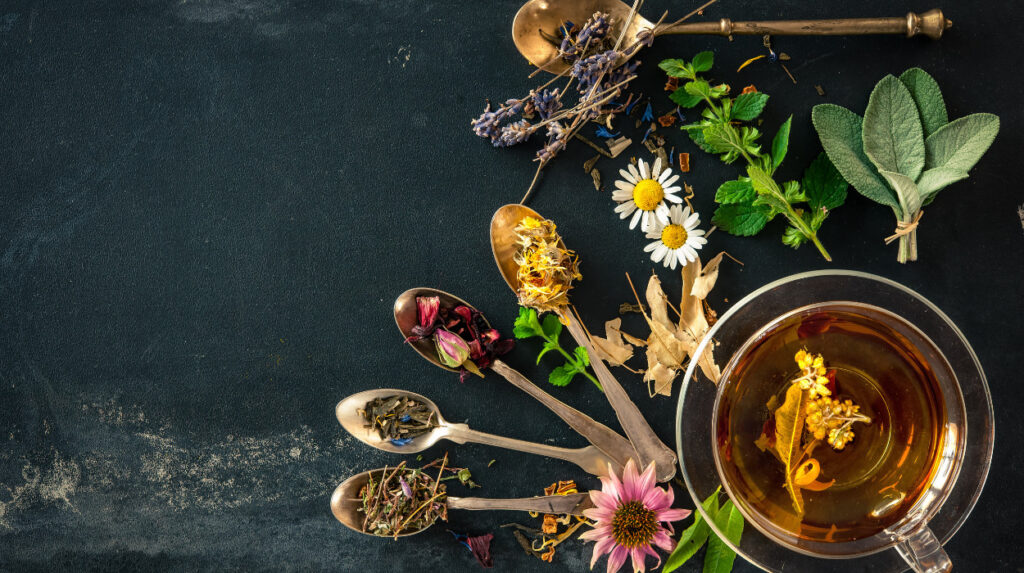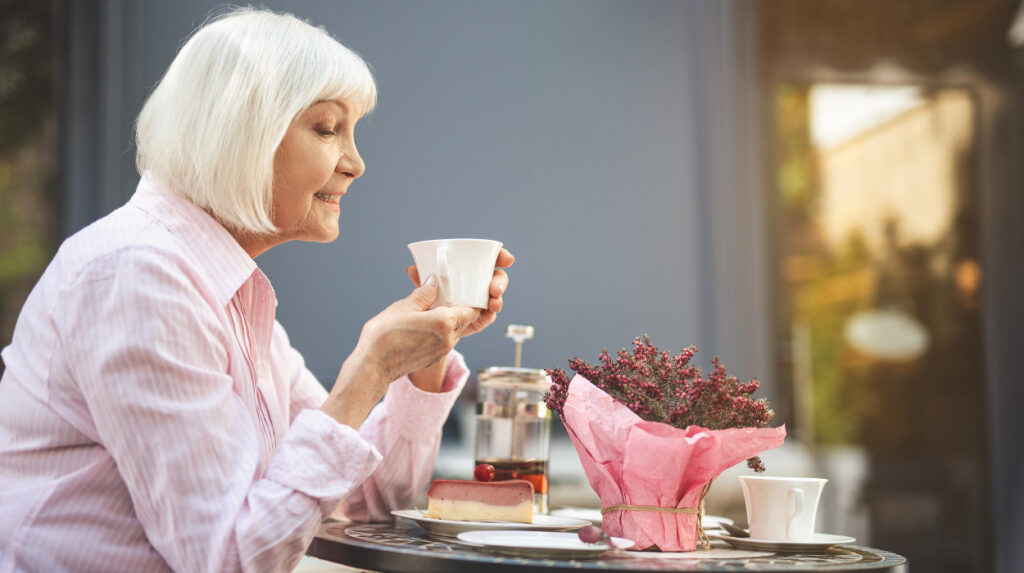In a world where stress and fast-paced living have become the norm, finding solace in natural remedies is more important than ever.
One such remedy that has stood the test of time is herbal tea.
Herbal teas, far more than just a soothing drink, have been revered for their diverse therapeutic properties throughout numerous cultures for centuries. This article explores the various benefits of herbal teas.
A Symphony of Flavors and Aromas:
Herbal teas offer a diverse range of flavors, from soothing chamomile and minty peppermint to the robust earthiness of ginger.
These natural infusions not only delight the taste buds but also engage the olfactory senses, creating a holistic and enjoyable experience.
Calming the Mind and Body:
One of the most celebrated benefits of herbal teas is their calming effect.
Ingredients like chamomile and lavender are renowned for their ability to promote relaxation and alleviate stress.
Enjoying a cup of herbal tea in the evening can be a simple yet effective ritual to unwind and prepare for a restful night’s sleep.
Boosting Immunity:
Many herbal teas are packed with antioxidants and vitamins that contribute to a robust immune system.
Ingredients such as echinacea, elderberry, and hibiscus have been traditionally used to ward off illnesses and support overall health.
Digestive Harmony:
Ginger, peppermint, and fennel are just a few examples of herbs known for their digestive benefits.
Herbal teas can help soothe an upset stomach, alleviate bloating, and promote healthy digestion after a meal.
Easing Aches and Pains:

Certain herbal teas possess anti-inflammatory properties that can provide relief from various aches and pains.
Turmeric tea, for instance, is celebrated for its anti-inflammatory and antioxidant effects, offering a natural alternative for managing discomfort.
Conclusion:
Herbal teas are not just beverages; they are elixirs that have been cherished for generations for their healing properties.
From promoting relaxation to supporting the immune system, these natural infusions offer a holistic approach to well-being.
So, why not embark on a journey of taste and health by incorporating a variety of herbal teas into your daily routine?
Your mind, body, and taste buds will surely thank you.
FAQ Section:
Are herbal teas safe for everyone, including pregnant women and children?
While many herbal teas are safe for most people, it’s crucial to exercise caution, especially during pregnancy. Certain herbs can have contraindications or interact with medications. It’s advisable to consult with a healthcare professional before introducing herbal teas to your diet, particularly if you are pregnant or have specific health concerns.
Can herbal teas replace medical treatments?
Herbal teas should be viewed as complementary to, not a substitute for, medical treatments. While they offer various health benefits, serious health conditions require professional medical attention. Consult your healthcare provider before relying solely on herbal teas for addressing specific health issues.
How should herbal teas be stored to maintain their freshness?
To preserve the freshness and potency of herbal teas, store them in a cool, dark place, away from moisture and strong odors. Using airtight containers or resealable bags can help prevent the herbs from losing their flavor and efficacy.
Can herbal teas help with weight loss?

Some herbal teas, such as green tea and dandelion tea, have been associated with weight loss benefits. Green tea, in particular, contains compounds that may aid in boosting metabolism. However, it’s important to note that herbal teas alone are not a magical solution for weight loss. A balanced diet and regular exercise remain crucial components of any weight management plan.
Are there any herbal teas that may interact with medications?
Yes, certain herbs in herbal teas can interact with medications. For example, herbs like St. John’s Wort may interfere with the effectiveness of certain medications. If you are taking prescription medications, it’s essential to consult your healthcare provider before regularly consuming herbal teas to avoid potential interactions.
How long should herbal teas be steeped for maximum benefits?
The optimal steeping time can vary based on the type of herbal tea and personal preference. Generally, herbal teas can be steeped for 5 to 7 minutes. However, delicate herbs like chamomile may require less time, while heartier herbs like hibiscus can withstand a longer steeping period. Experiment with different steeping times to find the flavor and strength that suit your taste.
Can herbal teas be enjoyed cold or iced?
Absolutely! Many herbal teas can be brewed and then chilled to create refreshing iced teas. This is a great option for warmer weather or when you’re in the mood for a cold beverage. Add a slice of lemon, a sprig of mint, or some berries for added flavor.
Are all herbal teas caffeine-free?
While the majority of herbal teas are naturally caffeine-free, there are exceptions. Teas like Yerba Mate and guayusa, though considered herbal teas, do contain caffeine. If you are looking for a caffeine-free option, choose herbal teas made from ingredients such as chamomile, peppermint, or rooibos.

Can herbal teas help with skin health?
Yes, some herbal teas contribute to skin health. Teas with antioxidant-rich ingredients, such as rooibos and green tea, may help protect the skin from oxidative stress. Additionally, teas with anti-inflammatory properties, like chamomile, may aid in calming skin conditions. However, individual responses may vary, and maintaining good skin care practices is essential.
Are there specific herbal teas recommended for managing stress and anxiety?
Yes, several herbal teas are known for their calming properties and may help in managing stress and anxiety. Chamomile, lavender, lemon balm, and passionflower are popular choices. Incorporating these teas into your routine can be a soothing ritual that contributes to a sense of calm and relaxation.

